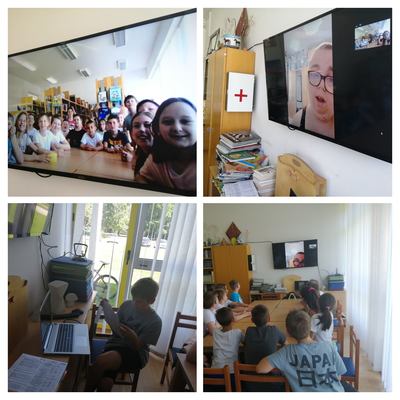MEETING A WONDERFUL, EDUCATED YOUNG LADY, LEARNING ABOUT THE LIFE OF PEOPLE WITH DISABILITIES
Our 4th graders had a meeting with Nevena, a young educator-rehabilitator, employed in Zamisli - The Association for the Promotion of Quality Education of Young People with Disabilities, in Zagreb.
Despite having to use her wheelchair in everyday life, Nevena managed to graduate from a university. She told the pupils about the difficulties people with disabilities face. Recently, she was one of the organisers of The Ride for a Quality and Independent Life in Zagreb. It is an initiative of young people. Their goal is to make the public aware of the needs of people with disabilities, especially the need to introduce legislative changes regarding personal assistants.
People with disabilities, especially young people, do not wish to spend their lives in care homes - they want to work, earn for living and do everything they are able to do on their own. Therefore, the state has to do everything possible to enable personal assistants, not only on weekdays but every day, to be there for them for a couple of hours a day and help them do chores.
Nevena taught the children some rules of etiquette for people with disabilities. It is always advisable to ask if there is anything you can do and how you can help - do not help unless being asked first.
Nevena was very kind as to answer the children's questions, even though some of them were rather personal - for example, they wanted to know how Nevena moves in buildings without an elevator, and what it is like to deal with people who do not understand the needs of people with disabilities.
In the end, as we wished to end the meeting in an optimistic atmosphere, the pupils read the story with humorous elements The Spitting Image, written by Ephraim Kishon, an Israeli author, dramatist and screenwriter.
This meeting helped us achieve the aims of our project: to increase students' motivation for reading, develop students' competence in applying knowledge into practice in literacy education, increase the self-esteem of students with fewer opportunities and strengthen students' empathy towards different age and social groups. As for key competences for lifelong learning, we promoted communication in the mother tongue and social and civic competences.
